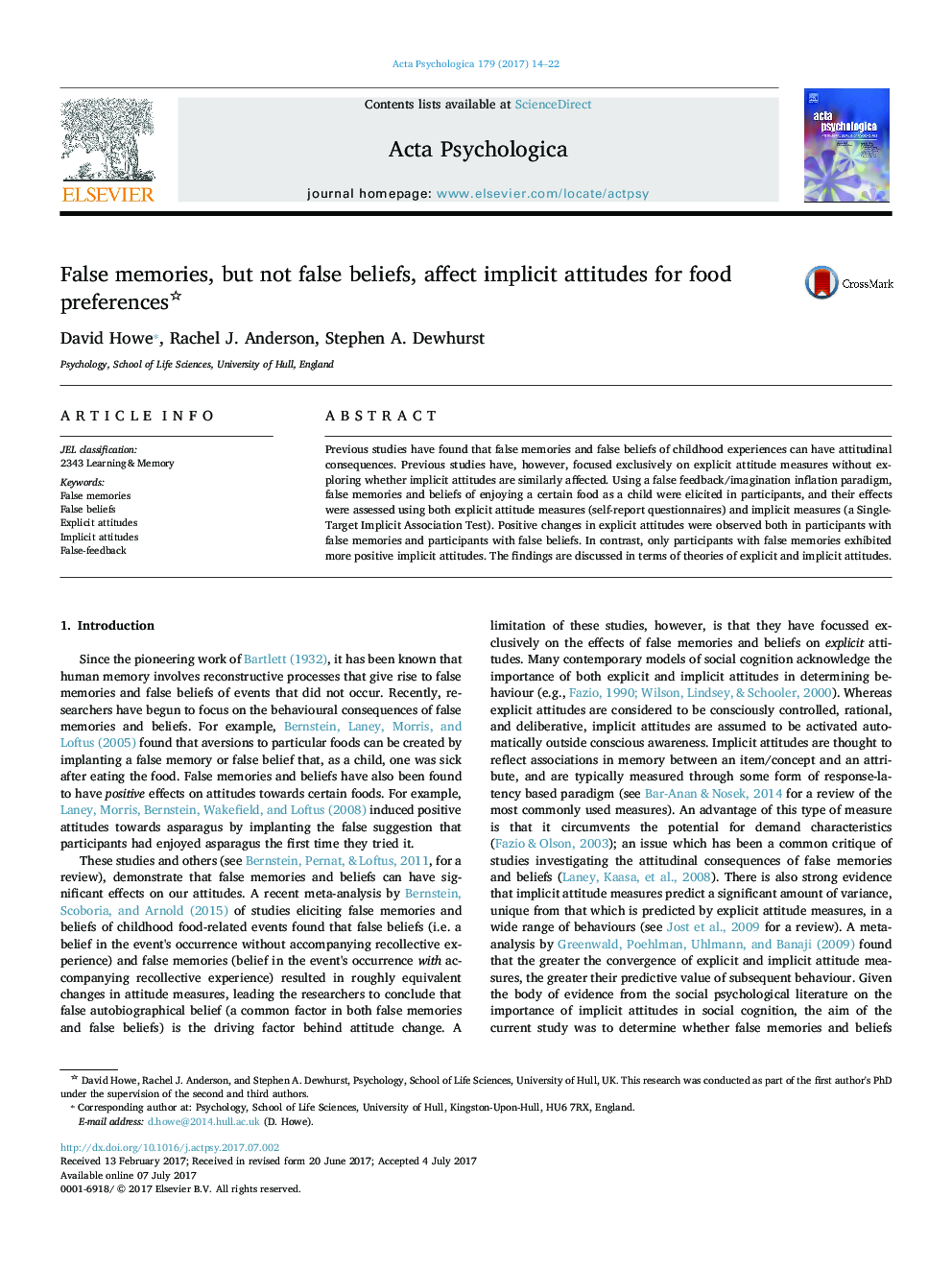| Article ID | Journal | Published Year | Pages | File Type |
|---|---|---|---|---|
| 5040218 | Acta Psychologica | 2017 | 9 Pages |
â¢We examined implicit and explicit attitudinal effects of false memories and beliefs.â¢False memories and beliefs of loving a food as child were elicited in participants.â¢False memories and beliefs enhanced explicit attitudes towards critical items.â¢Enhanced implicit attitudes observed only in participants with a false memory.
Previous studies have found that false memories and false beliefs of childhood experiences can have attitudinal consequences. Previous studies have, however, focused exclusively on explicit attitude measures without exploring whether implicit attitudes are similarly affected. Using a false feedback/imagination inflation paradigm, false memories and beliefs of enjoying a certain food as a child were elicited in participants, and their effects were assessed using both explicit attitude measures (self-report questionnaires) and implicit measures (a Single-Target Implicit Association Test). Positive changes in explicit attitudes were observed both in participants with false memories and participants with false beliefs. In contrast, only participants with false memories exhibited more positive implicit attitudes. The findings are discussed in terms of theories of explicit and implicit attitudes.
